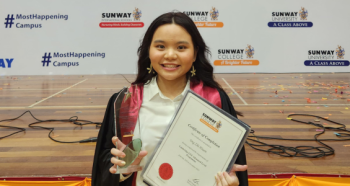As the world continues the struggle against the Covid-19 pandemic, Professor Jerry Lucido from the University of Southern California tells us why developing a global perspective is now more important than ever
How important is it for students to develop a global outlook from an early age?
We don’t need any more dramatic demonstration of the need for a global outlook than Covid-19. We have a worldwide scientific community working through a health crisis, we have political boundaries that diseases, climate change, pollution and economic issues do not respect, and our ability to understand one another for our common good has never been more critical.
On a more human level, a global outlook makes it far easier to tackle problems if we have an understanding of each other’s perspectives, cultures and traditions – valuing what those different perspectives bring. When we bring different perspectives to a problem we tend to solve it more creatively, and with solutions that have an opportunity to last.
What kinds of attributes do you look for in students?
As a professor, and as someone who was previously responsible for admissions, I think it’s critically important to have students who are well versed in all areas of the curriculum.
We want to teach students who have an open mind. Students who are open to evidence and difference, who will challenge us and challenge each other in the classroom. It makes for a much more exciting, productive environment for learning.
We hope to identify students who have a strong academic background and who can build upon multiple areas of study to solve problems, but we’re also looking for individuals who will be engaging and engaged – students who are interested in the world and solving worldwide problems.
How does the Cambridge curriculum, including Global Perspectives, build these attributes?
We see in the Cambridge curriculum in particular, and in some other advanced curriculum offerings, this notion of an engaged active learning environment – where students are presented problems, where they can identify the issues, and where they do some independent research. They draw conclusions and then have to communicate them to their peers and to faculty members.
In higher education we use abstract terms like critical thinking, analysis and synthesis – but what we’re really talking about is the ability to identify problems, to isolate an area of study that would be worth examining, collect data, apply relevant bodies of knowledge using multiple lenses to arrive at conclusions, to understand limitations, display and communicate results, and have an openness to feedback.
All these things are critical – and we’re going to expect students to do that on our campus. Students who already have an introduction to these skills can take education to a higher level.
How important is it for students to develop critical thinking skills?
There’s so much information out there which is simply incorrect – news that is intentionally fake. For example, the Russian tampering in worldwide elections is an interesting example – as is information that’s delivered over social media where you might not know that it’s coming from a source that might be hostile, or which has a particular position. How would you know if a source is trustworthy if you don’t start to think critically and understand social media?
How do you begin to develop these critical perspectives and the understanding that you need to look at and check multiple sources? I think for most students, that kind of critical engagement with information is going to be increasingly important during their lifetimes.





